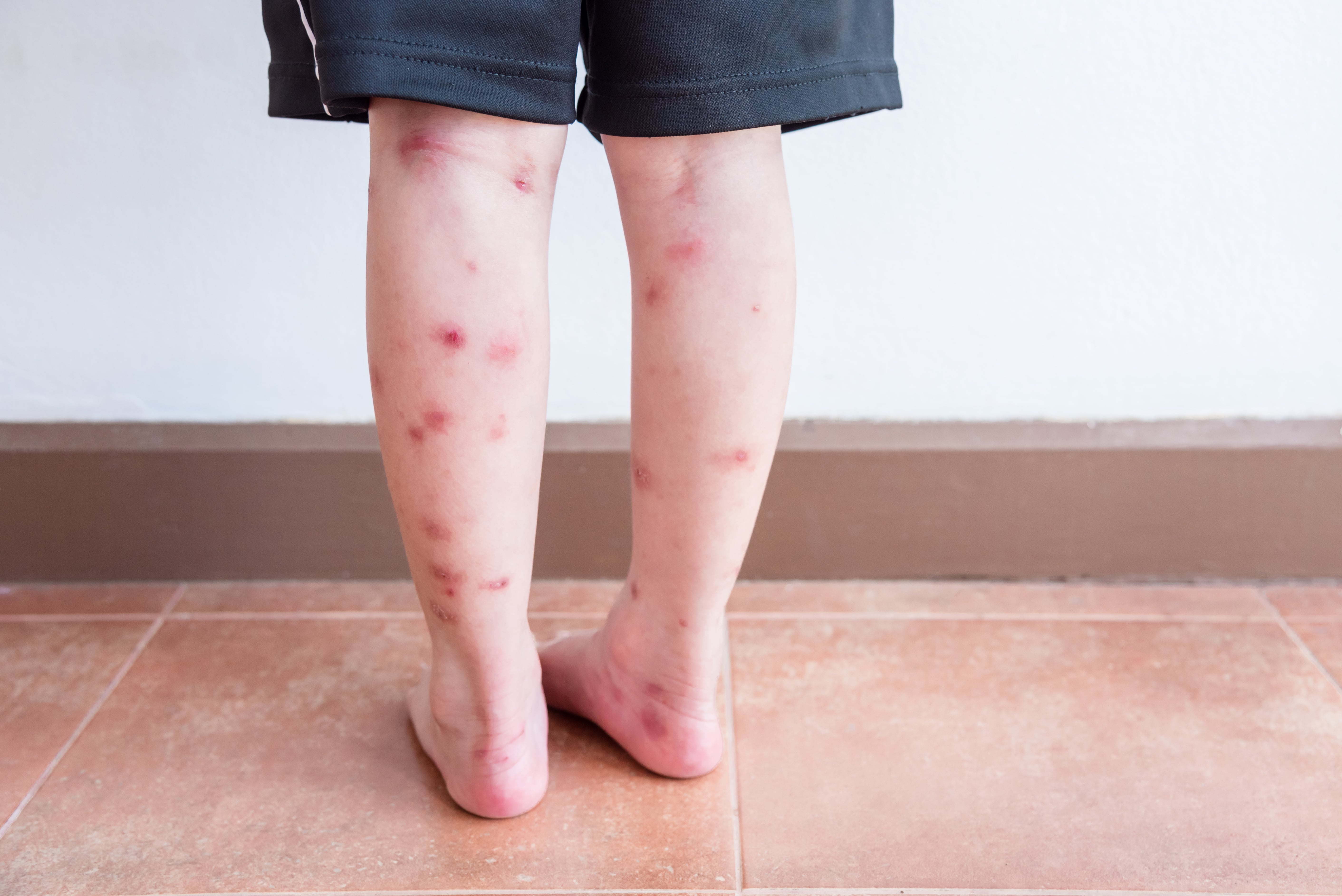Do bed bug bites itch? Some people may have no reaction to a bed bug bite, but for others, itching can be common. As with most insect bites, resisting the temptation to scratch bed bug bites can be difficult, but giving into temptation can lead to more problems.

Find out everything you need to know about bed bugs and their bites – including how to identify them and help treat the symptoms.
Why Do Bed Bugs Bite?
Like most insects that bite, bed bugs feed on blood. From the moment they're born, bed bugs depend on frequent feeding to grow and exist. They prefer humans, but they may travel as much as 20 feet to find another food source like pets, chickens or bats.
Bed bugs use a variety of biological signals, including body heat and carbon dioxide emitted from warm-blooded sources, to identify hosts for their meals. They're nocturnal, meaning they feed at night while their hosts are asleep.
According to the Centers for Disease Control and Prevention, when bed bugs bite, they inject their hosts with an anesthetic and an anticoagulant. The anticoagulant prevents blood from clotting so the insect can feed, while the anesthetic prevents the host from feeling anything. The anesthetic also keeps the bite from itching immediately, although itching may begin as the anesthetic wears off and the body begins to react to the saliva the insect left behind.
Each blood meal usually lasts around 10 minutes. After they feed, bed bugs return to their hiding places until they need their next meal. This is one reason infestations can be so difficult to detect.
What Does a Bed Bug Bite Look Like?
In some people, bed bug bites can appear as small, red areas, similar to a flea or mosquito bite. Some people may show no reaction at all. According to the CDC, bed bug bites may be in a random or straight line. Common bite sites include the arms, face, neck and legs, although they can appear anywhere.
As mentioned, not everyone who's bitten by a bed bug will have a reaction. However, for those that do react may have to deal with itching.
While most people experience only minor irritation from bed bug bites, some can have a more extreme reaction. Scratching bites can lead to further infection. The Centers for Disease Control and Prevention notes that bed bug bites can also cause mental health effects, including anxiety and insomnia.
Treating Symptoms
If you have bed bug bites that itch, one of the best things you can do is avoid scratching them if possible. The American Academy of Dermatology recommends a simple treatment regimen to help relieve symptoms of bed bug bites. This includes washing the bites with soap and water to help prevent infection and reduce itching, as well as applying a corticosteroid cream to the bites. While weak forms of these creams are available over the counter at your local drugstore, stronger medications are available with a prescription. You should consult with your dermatologist before starting any treatment.
What Do Bed Bugs Look Like?
Bed bug bites can be difficult to identify because they may look similar to other insect bites, including those of mosquitoes and fleas. So, the first step in figuring out if you actually have a bed bug bite is knowing what these insects look like so you can identify them in your home.
Related: Bed Bug Bite vs. Mosquito Bite
Bed bugs are small. Adults only measure about 1-7mm. They're flat and brownish in color with an oval-shaped body. Young bed bugs may be whitish in color, and eggs are very small (about the size of a pinhead) and white.
These insects are commonly found in mattress and furniture seams, and they may produce a musty odor.
How Do You Get Bed Bugs?
Bed bugs are very good at hitchhiking. In fact, the most common way they get into people's homes is in luggage, backpacks and even used furniture. If you travel and stay in a place that's infested with bed bugs, they can find their way into your belongings and come home with you. Bed bug infestations have been increasing since the 1990s, due in part to increased travel.
Bed Bug Prevention
Bed bugs are notoriously difficult to get rid of, so an ounce of prevention is worth a pound of cure. If you've been traveling, thoroughly inspect your luggage and belongings before entering your home. And if you suspect you have a bed bug infestation, don't try to handle it yourself – it's a job best left for the professionals. Terminix® offers free bed bug inspections, and our treatments are backed by our Bed Bug Guarantee.



